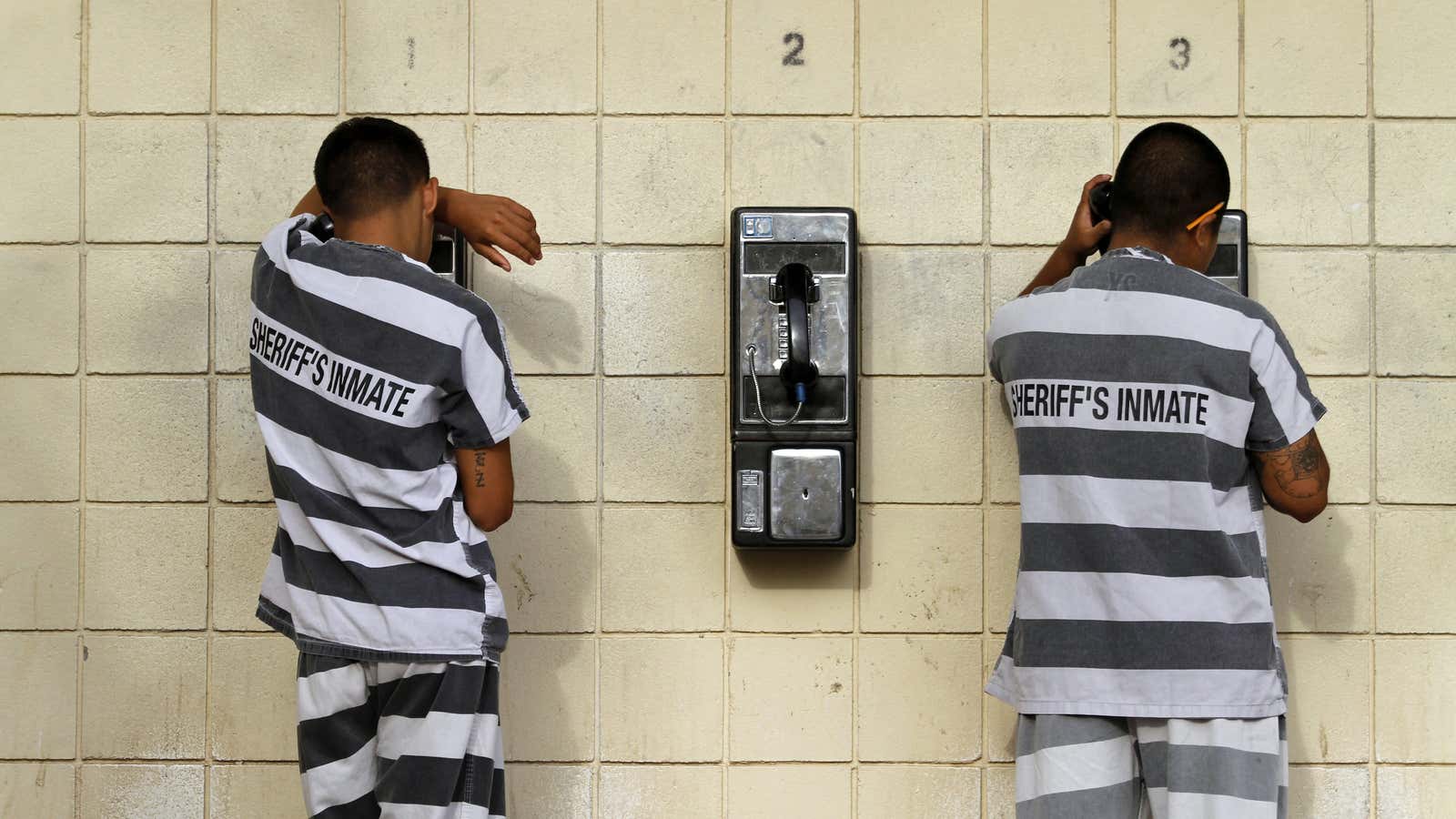Millions of American prison inmates and their loved ones will soon see an end to exorbitant phone fees, imposed by companies with monopolies on connecting inmates with the outside world.
The Federal Communications Commission voted today (Oct. 22) to pass a much-needed reform of the prison communications industry, capping all phone calls at $0.11 per minute in state and federal prisons. The reform passed 3:2 along partisan lines, with the appointed Democrat commissioners voting in favor, and Republicans against.
Currently, phone calls often cost more than $1 per minute including surcharges—creating outsize profits for the $1.2 billion prison phone industry. Prisons like the Maryland facility featured in the hit podcast “Serial” sign exclusive contracts with companies like Global Tel-Link, and receive a cut of the proceeds from each call, creating an incentive to raise rates as much as possible.
FCC commissioner Mignon Clyburn called the current system—which drains the resources of the United States’ 2.4 million mostly poor inmates and their families—”untenable, egregious and unconscionable.”
The new rules also:
- Cap phone rates in jails at $0.14 to $0.22 per minute, depending on the facility’s size.
- Cap some types of service charges, which sometimes add nearly 40% to the cost of a phone call, and ban others completely.
- Eliminate flat-rate calls.
- Discourage “site commissions,” kickbacks that pay a percentage of phone fees to the detention facilities.
- Facilitate communication for prisoners with disabilities.
- Recommend taking further steps against exploitative video visitation systems, which are growing in popularity.
The reforms have been in the works for several years. After FCC imposed a cap on interstate phone rates in 2013, the volume of calls in prisons increased by as much as 70% in some cases.
The commissioners emphasized the effect that the new policies would have on families—particularly the 2.7 million children of incarcerated parents in the United States.
A visibly moved Clyburn recalled the stories of families who paid thousands of dollars to stay in touch with their loved ones, even when they had to neglect other basic expenses. Keeping in touch with family has also been proven to reduce recidivism rates.
Several states have already implemented policies that cut the costs even further, as low as 4.5 cents per minute.
“We’re very excited that the Federal Communications Commission voted to cap the rates of all calls home from prisons and jails as well as ban abusive fees. We are hopeful that states will reduce the rates to families even further as states like New York and New Mexico have done,” the Prison Policy Initiative’s Bernadette Rabuy told Quartz.
